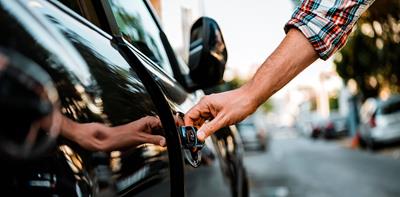
When buying a second-hand car, you’ll want to make sure you’re getting a good deal. Running a few simple checks online can help you find out a vehicle’s history and could help you uncover any previous problems. In fact, according to RAC, over half (52%) of used vehicles checked have a hidden history [1].
Thankfully, you can find a lot of information online, either for free or for a relatively small fee - especially if it saves you an expensive problem later on.
Here’s a rundown of what to watch out for in a used car’s history:
Check a car’s MOT history
You can use a free government online service to quickly check the past results of a vehicle’s MOT tests.
Simply enter the car’s registration number and the tool will draw on results for MOT tests done in England, Scotland or Wales since 2005. This will show you:
- If the car passed each MOT
- The mileage recorded when it was tested
- What parts failed at each test, and if any parts had minor problems
- When the next MOT is due
You can also find out where each MOT was done, but to get this information, you’ll need to provide the 11-digit number from the vehicle’s log book.
If there are any gaps in the car’s MOT history, ask the seller about them. For example, it might not have needed an MOT if it was unused for a period of time and was registered as off-road, or SORN.
Get information from the DVLA
Another useful and free online check you can do is to find out what information the Driver and Vehicle Licensing Agency (DVLA) has about the vehicle [2].
Again, by tapping in the vehicle’s registration number, you'll get details including:
- The vehicle’s current tax rate and when it expires
- Whether the car is registered as off-road (SORN)
- When its MOT expires
- The year it was manufactured and the date it was first registered
- Its weight, engine size and fuel type
- Its CO2 emissions
You can check the details you uncover in this search against the information provided by the seller, to see if it all matches. If it doesn’t, ask them - it could be a simple mistake. If you’re in any doubt and the dealer can’t answer your questions, then it’s better to walk away from the deal.
Pay for more detailed checks
For further confidence in a car’s history, you can pay - typically between £10 and £30 [3] - for a more detailed account.
Companies including RAC, AA and HPI Check will search databases held by the police, the DVLA, insurance companies and finance houses to provide you a report. This will include important details such as whether:
- The car is stolen: if you buy a vehicle that turns out to have been stolen then it may have to be returned to the rightful owner, leaving you out of pocket [4].
- The mileage is incorrect: according to research published this year by Rapid Car Check, there could be as many as 2.5 million clocked cars and vans on the road in the UK [5].
- The car has been written off, repaired and then returned to the road: thieves may bring a written-off car back from the dead by using parts from other cars.
- The car has any outstanding loans against it: if you buy a car which is still on finance, you may lose the vehicle and the money you paid for it.
Buying a used car can sometimes feel like a bit of a risk. But getting as much information as possible before closing the deal can help you enjoy your new set of wheels with peace of mind.

